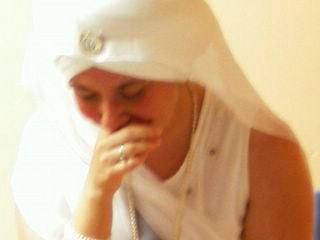DVD of March Japji Sahib Course
Wahe Guru Ji Ka Khalsa, Wahe Guru Ji Ki Fateh.
Thanks to the efforts of Kartar Singh Khalsa and Pritampal Singh in Herndon, Virginia, the Japji Sahib course that was taught in Virginia during March is available on DVD for a very limited time.
The course, which lasted for three hours on Friday night, and all day Saturday has been edited down to four DVD’s. We’ve found a company who will reproduce the DVDs inexpensively.
The cost for the total set (all four DVDs) is only $23.
The price covers the reproduction costs for the DVDs and shipping to any city in the United States. (It may need to be a little bit more if you live outside of the United States.)
If you would like to order a copy, please email Kartar Singh at KartarKhalsa@kiit.com by May 31st.
We are only doing one production run of the DVD. So if you’d like to be included in this, kindly do let him know by May 31st.
He also requests that, after you place your order, if you could please mail your check to:
Kartar Khalsa
1259 Bond St.
Herndon, VA 20170
Thought there might be a few of you who would be interested in seeing the course. Gurumustuk Singh will also be posting a segment or two from the course on his blog, www.mrsikhnet.com.
Many blessings.
All Love in the Divine,
Ek Ong Kaar Kaur
Thanks to the efforts of Kartar Singh Khalsa and Pritampal Singh in Herndon, Virginia, the Japji Sahib course that was taught in Virginia during March is available on DVD for a very limited time.
The course, which lasted for three hours on Friday night, and all day Saturday has been edited down to four DVD’s. We’ve found a company who will reproduce the DVDs inexpensively.
The cost for the total set (all four DVDs) is only $23.
The price covers the reproduction costs for the DVDs and shipping to any city in the United States. (It may need to be a little bit more if you live outside of the United States.)
If you would like to order a copy, please email Kartar Singh at KartarKhalsa@kiit.com by May 31st.
We are only doing one production run of the DVD. So if you’d like to be included in this, kindly do let him know by May 31st.
He also requests that, after you place your order, if you could please mail your check to:
Kartar Khalsa
1259 Bond St.
Herndon, VA 20170
Thought there might be a few of you who would be interested in seeing the course. Gurumustuk Singh will also be posting a segment or two from the course on his blog, www.mrsikhnet.com.
Many blessings.
All Love in the Divine,
Ek Ong Kaar Kaur

